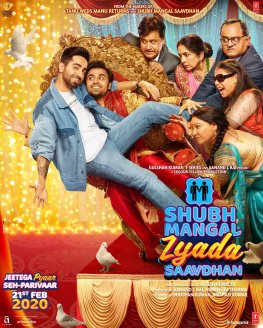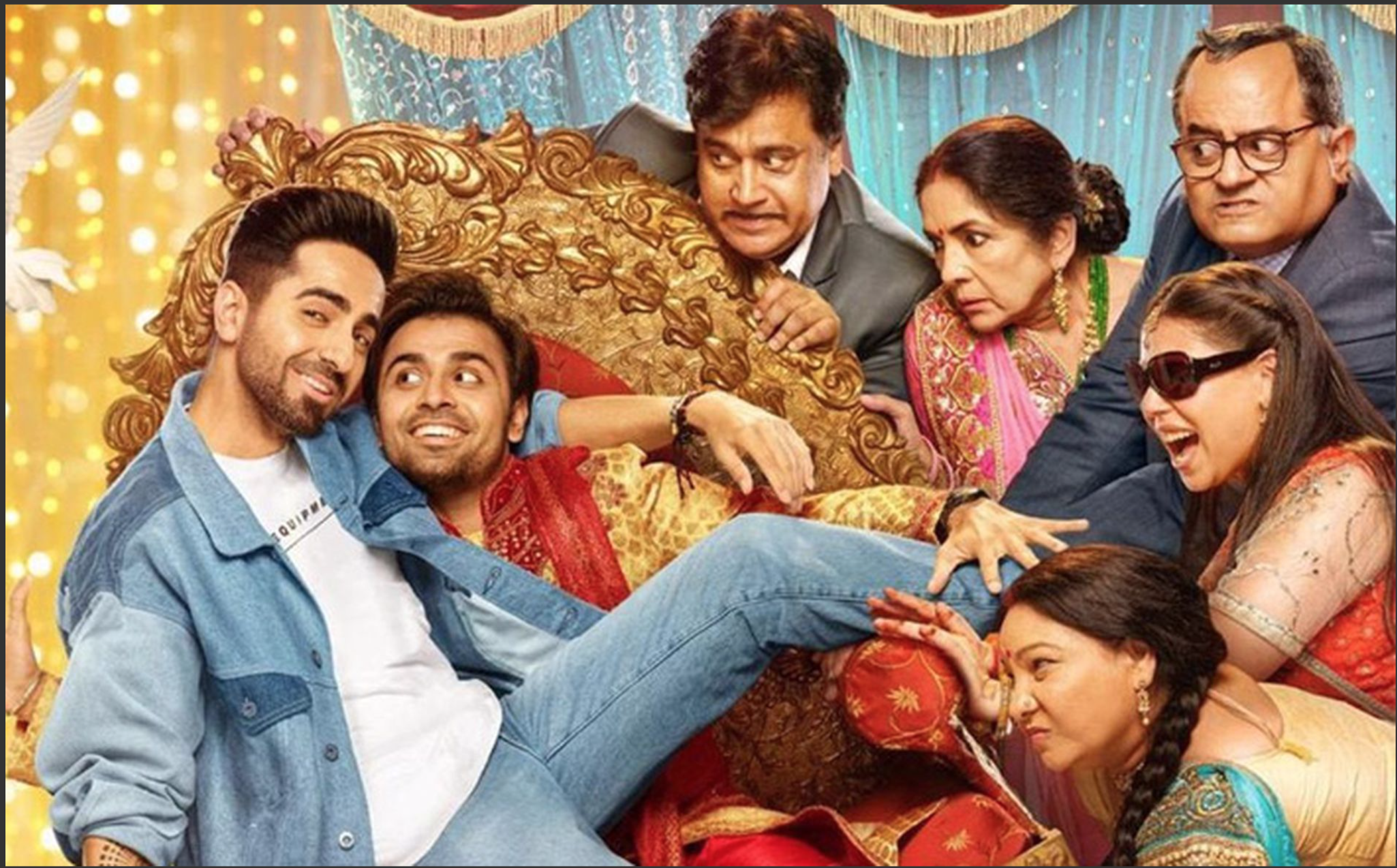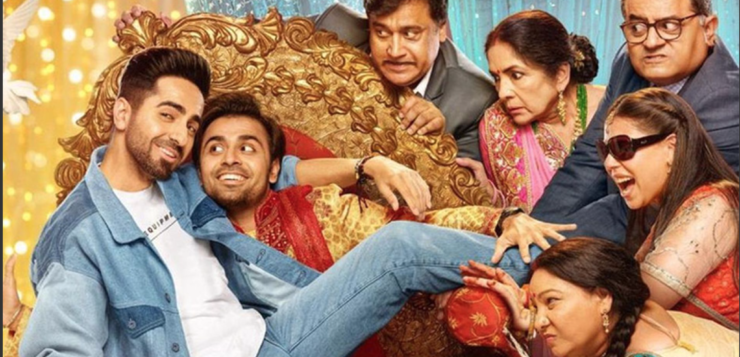 Shubh Mangal Zyada Saavdhan
Shubh Mangal Zyada Saavdhan
Directed by Hitesh Kewalya
Colour Yellow Productions
(Mumbai, India)
THIS NEW FILM from India belongs to a tiny genre: a popular, Indian-made film that’s earnestly and openly pro-gay, where gay characters are not used for comic relief or portrayed as sexual predators. Indeed Shubh Mangal Zyada Saavdhan may—depending on how broadly “romcom” is defined—be the very first gay Bollywood film in that genre.
One of the first pro-gay Bollywood movies was a 2016 film called Aligarh. It was based on the true story of a gay professor who was hounded to death in 2010. It was given the equivalent of an R rating, despite the lack of any graphic elements, and was banned in the area in which the real-life events had taken place. That same year, another Bollywood film, Kapoor and Sons, featured a lead character who was gay. Five major Indian actors turned down the role, afraid of damage to their images. Finally, a Pakistani actor accepted the part, and the decision was made to hide its gay themes in promotions for the movie. Both films were successful financially, and it was observed that the middle-class, movie-going public had evolved more quickly than expected. A year ago, the pioneering Ek Ladki Ko Dekha Toh Aisa Laga (translated as “How I Felt When I Saw that Girl”) was released. It’s a wedding romcom about a family whose lesbian daughter comes out, though marketing sidestepped this issue, and her sexuality is not the major focus of the movie.
Released in February, Shubh Mangal Zyada Saavdhan tells the story of two young gay men who are determined to defy parental and societal expectations and mold their own happily every afters. It’s in Hindi with English subtitles, and Toronto’s daily newspaper, The Globe and Mail, notes that “shubh mangal saavdhan” is a mantra announcing a wedding, while the word “zyada” means “something extra.” Kartik, son of a blue-collar worker, and Aman, son of a scientist (whose father cultivates evil-looking black cauliflower plants that play an all-too-prominent part in the movie), live together in Delhi, though we never learn how or when they met. They manage to eke out a living by working for a toothpaste company where they dress in superhero costumes to entice shoppers to use the product. Kartik is the take-charge, dominating force in this relationship, and sports a triangle tattooed on his jaw. Aman is shown as willing to follow along in any scheme, no matter how unhappy the consequences. In a very brief flashback, we see Kartik’s father beating him when he comes out. Aman is not yet out to his family.

Martha E. Stone is the literary editor of this magazine.







